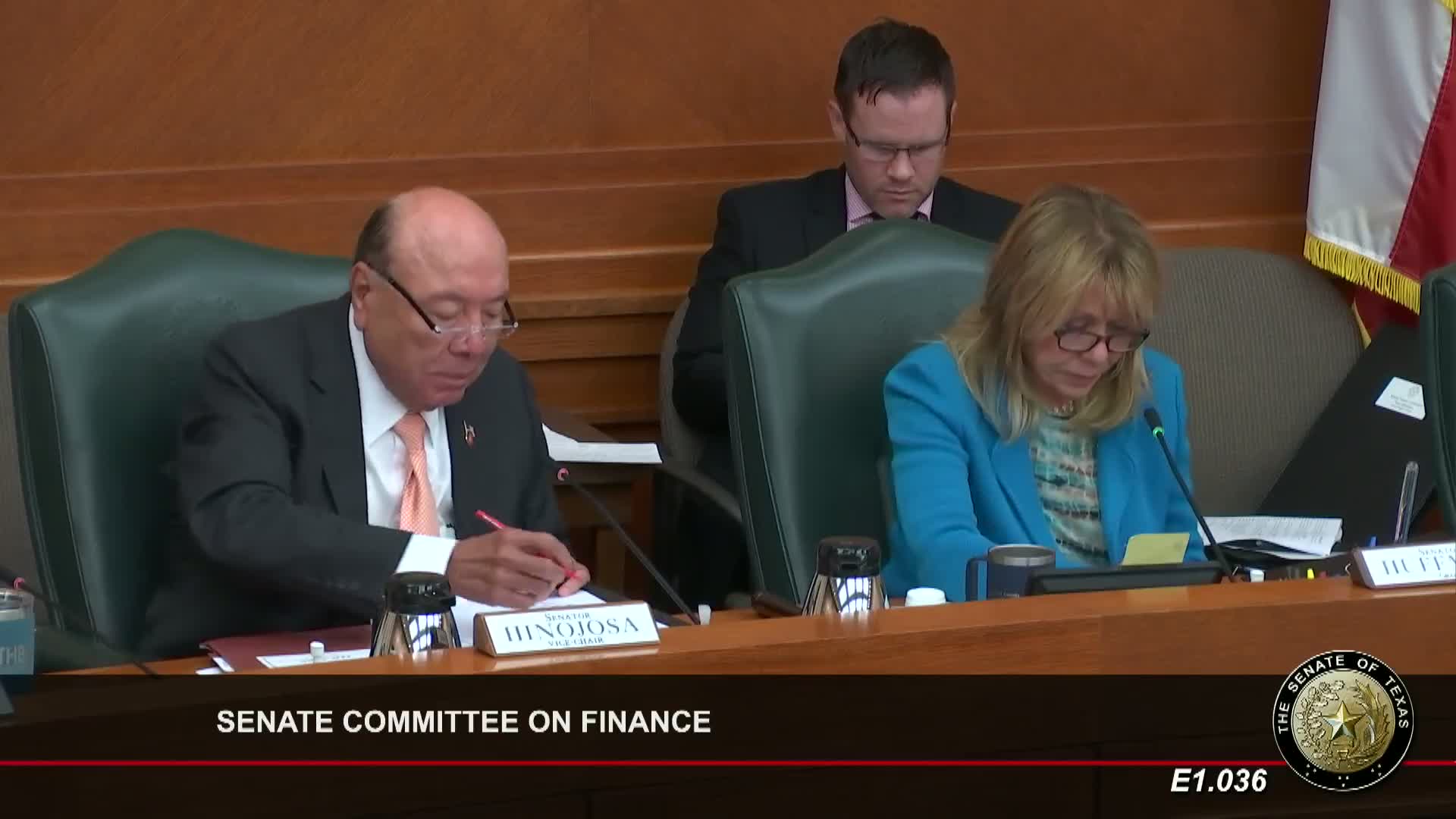Article not found
This article is no longer available. But don't worry—we've gathered other articles that discuss the same topic.
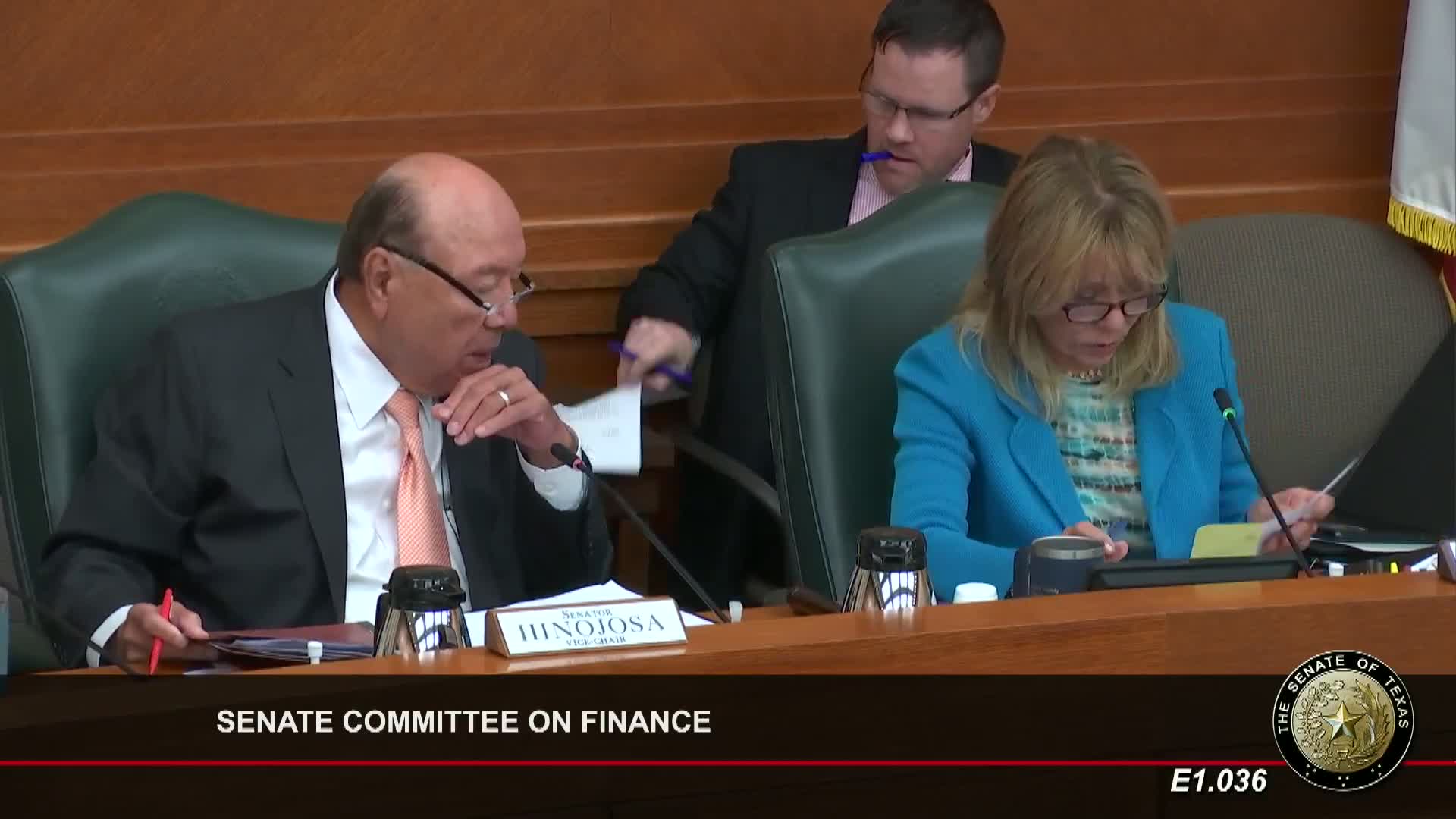
Committee hears change to allow Attorney General to issue emergency awards earlier in victims’ compensation process
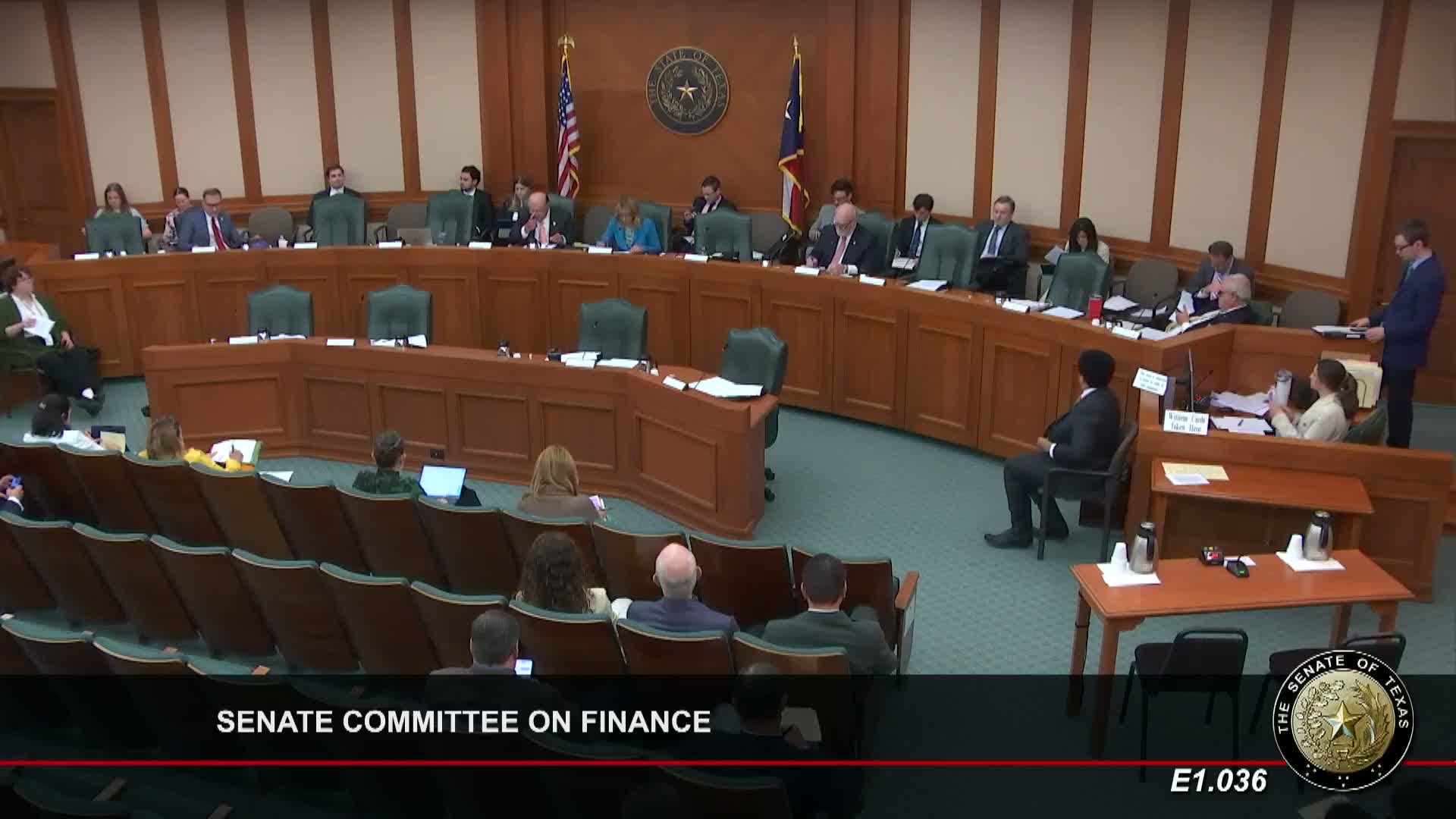
Senate finance hears oyster-industry incentives: credits for Texas farmed oysters and shell recycling
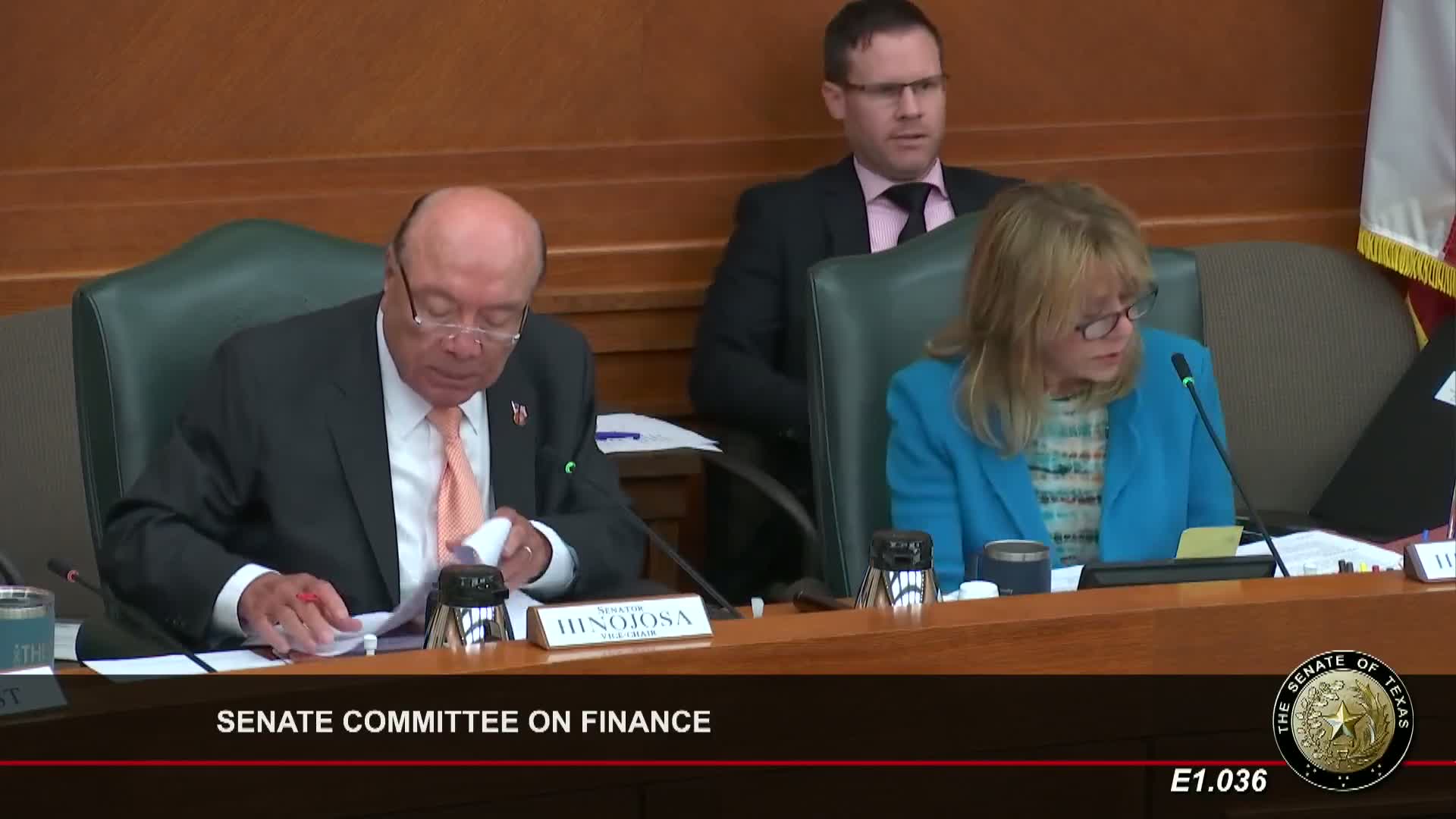
Committee approves aligned DROP access for Houston police and firefighters
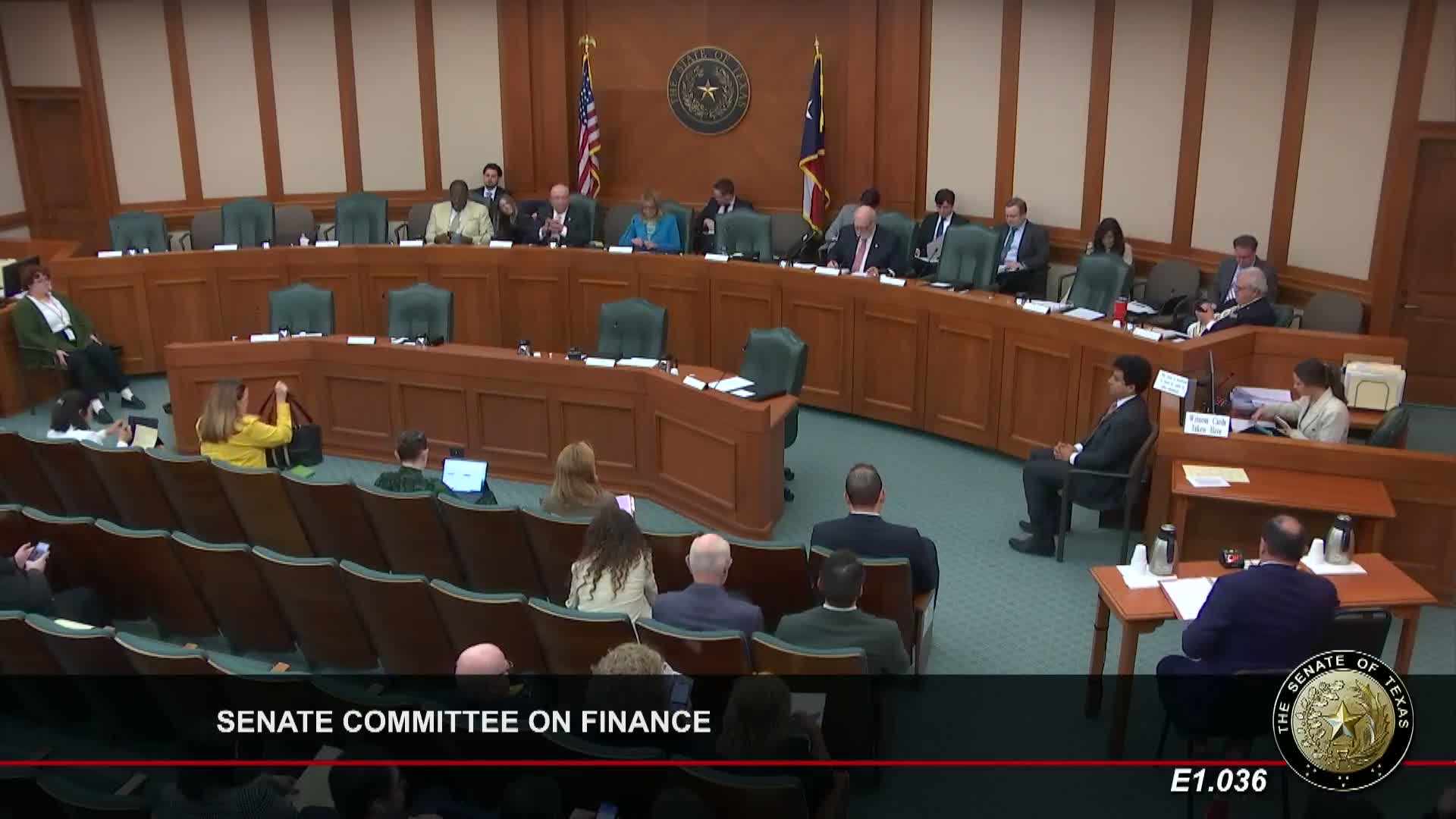
Senate panel backs optional 8% employee contribution option for TMRS
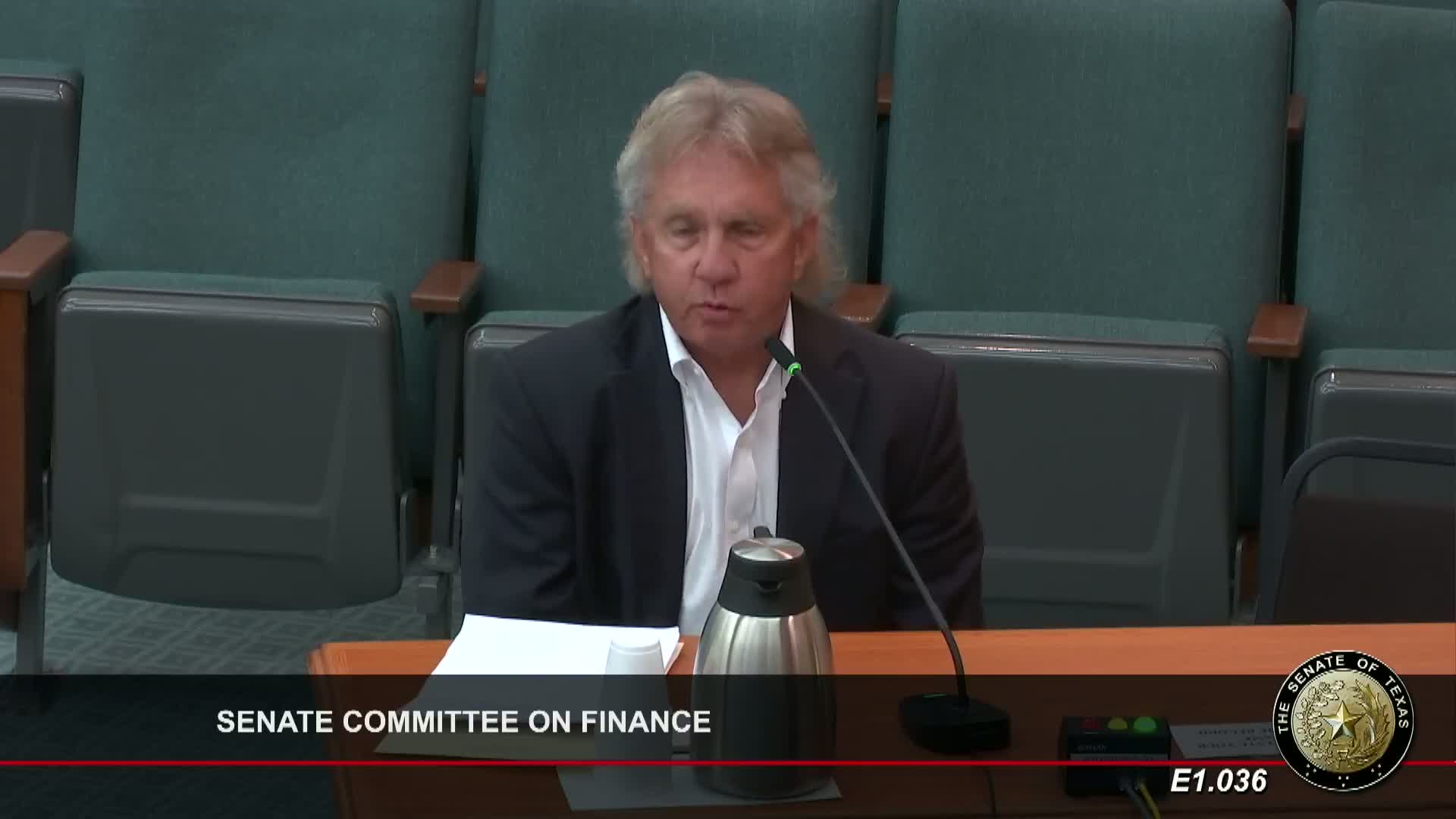
Senate committee backs sales-tax exemption for food bank vehicles and homeless-housing trailers
